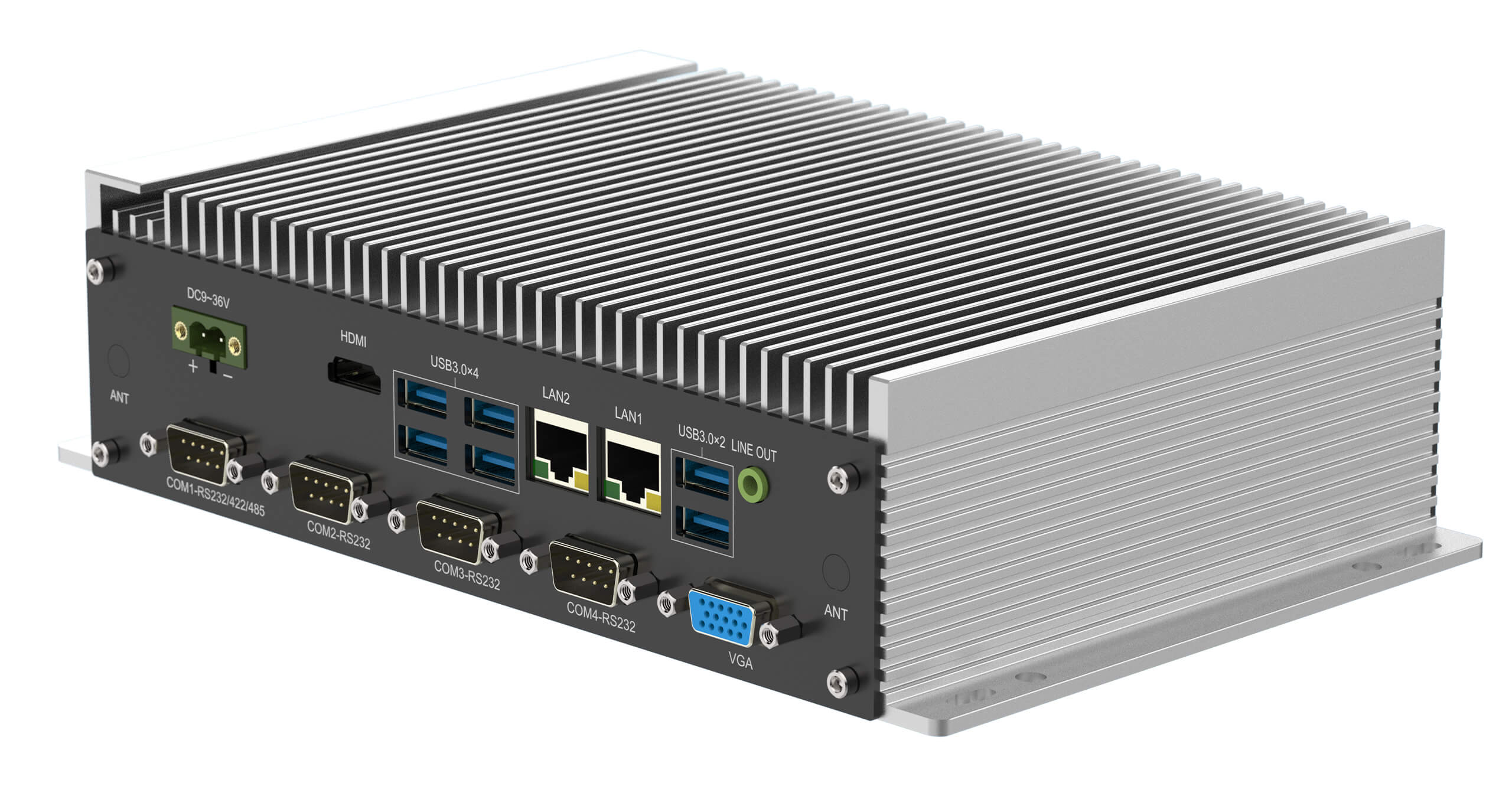A fanless industrial panel PC is a specialized computing device designed for use in industrial environments. Unlike traditional computers, which rely on fans for cooling, fanless industrial panel PCs utilize passive cooling methods such as heat sinks and heat pipes to dissipate heat generated by internal components. This innovative design eliminates the need for moving parts like fans, making the panel PC more robust and reliable in harsh industrial conditions.
The significance of fanless industrial panel PCs in industrial environments cannot be overstated. These rugged devices offer several advantages over their fan-cooled counterparts. Firstly, their fanless design reduces the risk of component failure caused by dust, debris, and vibration commonly encountered in industrial settings. This ensures uninterrupted operation and minimizes downtime, thereby increasing productivity and efficiency.

Understanding Fanless Industrial Panel PCs
Fanless industrial panel PCs represent a significant advancement in computing technology, offering several advantages over traditional industrial PCs. Let’s delve into the key aspects of these innovative devices:
Explanation of fanless technology
Fanless technology in industrial panel PCs dissipates internal component heat without cooling fans. Fanless industrial panel PCs use passive cooling methods like heat sinks and thermal conductivity materials. This design eliminates potential points of failure from moving parts, resulting in a reliable and durable computing solution.
Components and features of industrial panel PCs
Industrial panel PCs are specialized computing devices designed for use in industrial environments. They typically consist of a ruggedized enclosure housing a high-performance CPU, RAM, storage drive, touchscreen display, and various I/O ports. The touchscreen display allows operators to interact with the system using intuitive touch gestures, while the robust enclosure provides protection against dust, moisture, and mechanical shock. Additionally, industrial panel PCs often feature IP-rated enclosures for added protection and durability in harsh industrial environments.
Comparison with traditional industrial PCs
Compared to traditional industrial PCs, fanless industrial panel PCs offer several distinct advantages. Firstly, their fanless design eliminates the risk of fan failure, which is a common cause of system downtime in industrial settings. This increases the reliability and uptime of the system, leading to improved productivity and efficiency. Additionally, fanless industrial panel PCs operate silently, without the noise generated by cooling fans, making them ideal for noise-sensitive environments or applications where a quiet working environment is necessary.
Advantages of Fanless Industrial Panel PCs
Fanless industrial panel PCs offer several key advantages that make them superior choices for industrial environments:
Silent operation
Fanless industrial panel PCs operate silently since they don’t rely on cooling fans. This absence of noise is especially advantageous in noise-sensitive environments or areas where a quiet working atmosphere is necessary, promoting a more comfortable and productive workspace.

Improved reliability and durability
By eliminating moving parts like fans, fanless industrial panel PCs experience fewer mechanical failures. This enhances their reliability and durability, ensuring uninterrupted operation even in harsh industrial conditions characterized by dust, vibration, and temperature fluctuations.
Reduced maintenance requirements
The absence of cooling fans simplifies maintenance requirements for fanless industrial panel PCs. Without fans to clean or replace, maintenance tasks are minimized, reducing downtime and associated costs. This results in improved system uptime and productivity.
Enhanced protection against dust and debris
Fanless industrial panel PCs are better protected against dust and debris ingress compared to their fan-cooled counterparts. With no fan vents or openings, there are fewer points of entry for contaminants, reducing the risk of component damage and prolonging the lifespan of the device.
Energy efficiency
Fanless industrial panel PCs typically consume less power than traditional industrial PCs with cooling fans. The absence of fans reduces power consumption, contributing to energy savings over the long term. This makes fanless industrial panel PCs environmentally friendly and cost-effective solutions for industrial applications.
Applications of Fanless Industrial Panel PCs
Fanless industrial panel PCs find versatile applications across various industries, providing reliable computing solutions in challenging environments. Let’s explore some key applications:
Manufacturing and automation
In manufacturing and automation settings, operators utilize fanless industrial panel PCs for controlling production processes, monitoring equipment performance, and executing automation tasks. These rugged devices withstand the rigors of industrial environments, ensuring uninterrupted operation and facilitating efficient manufacturing processes.
Transportation systems
Fanless industrial panel PCs play a crucial role in transportation systems, such as trains, buses, and airplanes. They are used for vehicle control, passenger information displays, ticketing systems, and onboard entertainment. With their silent operation and robust design, these panel PCs ensure reliable performance in demanding transportation environments.

Healthcare facilities
In healthcare facilities, caregivers deploy fanless industrial panel PCs for various applications, including medical equipment interfaces, patient monitoring systems, and electronic health record management. These devices provide reliable computing solutions for healthcare professionals, contributing to improved patient care and operational efficiency.
Retail and hospitality sectors
Fanless industrial panel PCs are used in the retail and hospitality sectors for point-of-sale terminals, self-service kiosks, digital signage, and inventory management systems. Their compact design, silent operation, and durability make them ideal for deployment in retail stores, restaurants, hotels, and other hospitality establishments.
Energy and utilities
In the energy and utilities sector, operators utilize fanless industrial panel PCs to monitor and control critical infrastructure, such as power generation, distribution systems, and water treatment plants. These rugged devices provide reliable computing solutions for managing energy production, optimizing resource utilization, and ensuring regulatory compliance.
Conclusion
In summary, fanless industrial panel PCs offer silent operation, durability, reduced maintenance, protection against dust, and energy efficiency. They find applications across manufacturing, transportation, healthcare, retail, hospitality, energy, and utilities sectors, enhancing productivity and efficiency. Moving forward, these devices will continue to play a vital role in industrial automation and digitalization, driving innovation and competitiveness in various industries.
